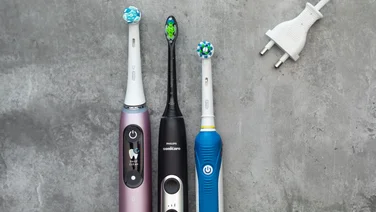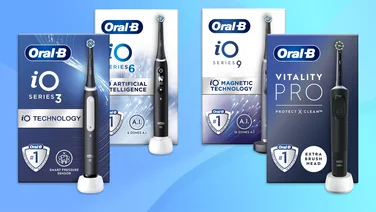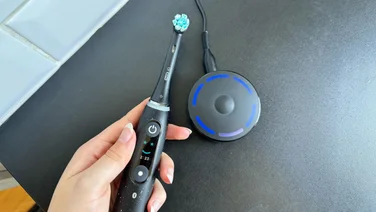To help us provide you with free impartial advice, we may earn a commission if you buy through links on our site. Learn more

Learning how to stop sensitive teeth pain is essential if you want to keep your oral hygiene on track. Not only can sensitivity be an indicator of more serious dental issues, but it can prevent you from indulging in certain foods and limit your enjoyment of everyday life. If that sounds like you, then the best toothpaste for sensitivity will be essential to help you build up a layer of protection to prevent pain.
If it occurs, sensitivity is often felt when eating especially hot or cold foods, and it can quickly take the enjoyment away from small pleasures, like enjoying a bowl of ice cream. If your dental issues are more serious, this sensitivity could develop into more pronounced issues, such as toothache and sharp pain rather than just sensitivity. If you do experience sharp pain or bleeding of the gums when you brush your teeth, the advice from the NHS is to visit your dentist to get professional advice as soon as possible.
Treat underlying dental conditions
Sensitivity can indicate serious dental issues, such as tooth decay. The best way to get to the root of the problem is to visit a professional so that you can embark on a treatment plan if needed. Tooth decay can be due to unsatisfactory teeth cleaning, so be sure to get advice from your dentist if you need it. Switching out your old, manual toothbrush for an electric toothbrush – or an Oral-B toothbrush – can be a good place to start.
Switch your toothpaste
Once you’ve tackled any underlying issues with your dentist, the first step to rebuilding your tooth protection is to change your toothpaste.
There are toothpastes on the market formulated for this purpose, including our top-rated choice after testing, Sensodyne’s Pronamel Sensitive Toothpaste. Toothpastes like this will help you to rebuild enamel on your teeth, and should, over time, prevent sensitivity. That’s thanks to a range of ingredients, including Hydroxyapatite.
The advice to use desensitising toothpaste is shared by Dr Daz Singh, Lead Dentist and Clinical Director for Ollie and Darsh Liverpool, who says that such products “contain compounds like potassium nitrate or strontium chloride, which can help block pain signals from reaching the nerves in the teeth.” If you’re going to give it a go, Dr Singh advises that you “use it regularly as part of your oral hygiene routine.”
READ NEXT: Best water flossers
Think about when you’re brushing – and how thoroughly
If you’re in the brush-your-teeth-before-breakfast club, you may need to consider a switch in your morning routine.
Advice from many dentists, including Dr Jay Joshi, Principal Dentist at MKDental, is, in fact, to brush after your first meal of the day, in order to reduce sensitivity and to prevent acidic foods from your breakfast from damaging your tooth enamel. There are good reasons for this: “Brushing your teeth after breakfast is considered beneficial for oral health because it helps protect your teeth from the potential harm caused by acidic foods and beverages,” explains Dr. Joshi. “Brushing post-meal also reduces sensitivity, enhances convenience for many and psychologically discourages snacking between meals.”
It’s a small change, but it will improve your overall oral health and reducing the temptation of snacking can be a nice additional benefit. Though we’re often taught to rinse after brushing our teeth, experts also recommend going without, in order to keep the fluoride on your teeth for longer.
Another thing that can help is being thorough with your teeth cleaning routine. By supplementing brushing with flossing and using interdental brushes, you can reduce plaque build-up, and in turn, help to prevent sensitivity.
READ NEXT: Best teeth whitening strips
Stop using excessive force when brushing
If you’re experiencing tooth pain, it can seem like a good idea to amp up on the force you use when brushing your teeth. Putting added pressure onto your already sensitive teeth can only exacerbate your issues, however. Clean thoroughly, but not too hard.
Cut down on sugar and fizzy drinks
Making changes in your diet can help with tooth sensitivity in the long term, as well as massively aiding your overall health. By cutting out fizzy or acidic drinks, such as sports drinks, you can help to protect your teeth against decay. Laying off the sweets and chocolate is always a good idea too, in order to reduce the amount of sugar you’re consuming and therefore reduce your risk of tooth decay.





